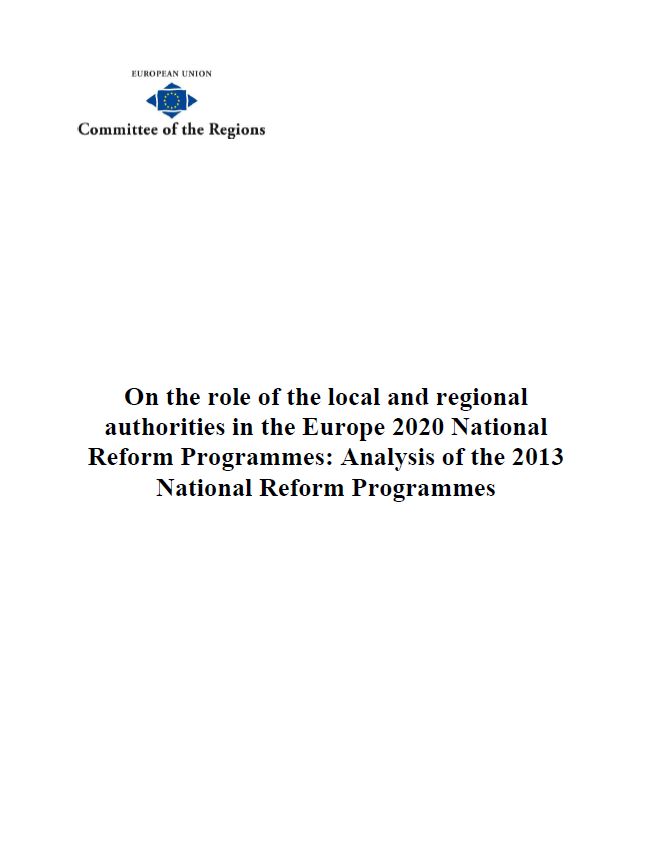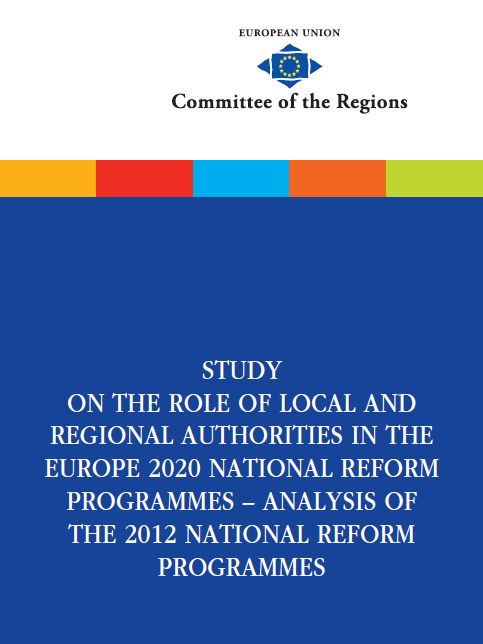The Role of Local and Regional Authorities in the Europe 2020 National Reform Programmes
Analysis of the 2013 National Reform Programmes
- Publication
- Citation
Srebotnjak, Tanja; Max Grünig; Sydney Baloue et al. 2013: On the role of the local and regional authorities in the Europe 2020 National Reform Programmes: Analysis of the 2013 National Reform Programmes.
For the third time, Ecologic Institute conducted a study on the role of local and regional authorities (LRA) in the Europe 2020 National Reform Programmes (NRP) of the EU member states. The new results and their comparison with the 2011 and 2012 studies (for the core set of questions) permit a number of conclusions. While progress is made in many countries and areas, greater progress still needs to be made concerning the involvement of LRAs in the preparation of NRPs. The study is available for download.
Objectives of the 2013 study
The study evaluates the 2013 NRPs with the objective to analyse the scope, types and roles of involvement of LRAs in the design and implementation of the NRPs.
Specifically, the present study examines:
- if and to what extent local and regional authorities (and their representatives) were involved in the implementation of the NRPs and in which ways;
- whether the approach of multilevel governance is being adopted in the implementation of the Europe 2020 strategy;
- what the current trends are, i.e., to what extent involvement of LRAs has progressed (or not) compared to the 2012 analysis of the NRPs in terms of partnerships, adoption of multilevel governance approaches;
- how Member States are using or are planning to use the Structural Funds to achieve the Europe 2020 targets and goals. Specifically, if and how LRAs are involved in the ongoing preparation of Partnership Agreements on the implementation of the new Common Strategic Framework for Cohesion Policy 2014-2020.
Conclusions
The new results and their comparison with the 2011 and 2012 studies (for the core set of questions) permit a number of conclusions:
- Progress in demonstrating the role, participation and contributions of LRAs in the development and implementation of the NRP and its activities is not uniform and or satisfactory in most countries.
- Sweden, the UK, Germany and France are found to be the most consistent countries in demonstrating the role and contributions of LRAs to their NRPs.
- A sizeable number of countries have shown progress since 2011, many of whom are new EU members that have experienced democratization processes since the 1990s.
- The extent to which NRPs reflect on LRAs varies across the issues that were assessed. Most NRPs mention LRAs in the contexts of implementation and to a lesser extent in drafting process of the NRP.
Background
The Europe 2020 strategy reaffirms the goal of the European Union to become a smart, sustainable and inclusive community by 2020. The Europe 2020 Strategy contains quantifiable targets and flagship initiatives to achieve these goals. The Committee of the Regions (CoR) supports the Europe 2020 Strategy, while simultaneously emphasizing the need to coordinate and implement actions at all levels of government, including local and regional authorities (LRAs).





